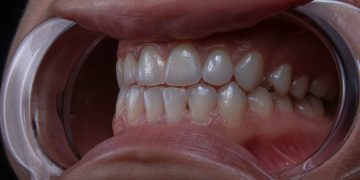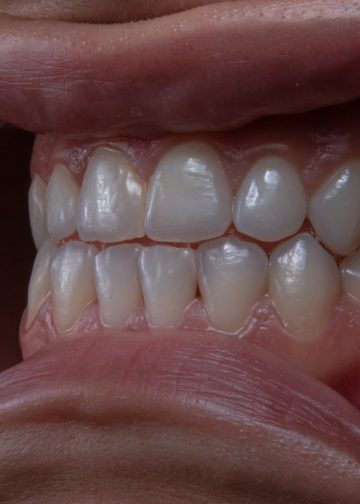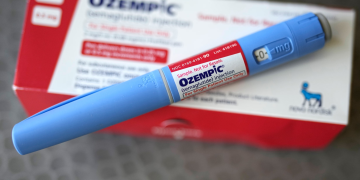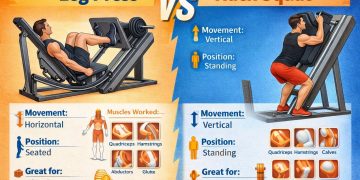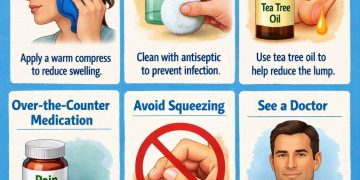Transcranial Magnetic Stimulation (TMS) therapy has emerged as a promising non-invasive treatment modality for various mental health conditions. This innovative approach utilizes magnetic fields to stimulate specific regions of the brain, leading to improved symptoms and enhanced overall well-being. With its FDA-approved applications and ongoing research, TMS therapy continues to offer hope for individuals struggling with mental health disorders. In this article, we will delve into the different ways TMS therapy is utilized to treat various mental health conditions.
Understanding TMS Therapy
Transcranial Magnetic Stimulation involves the use of electromagnetic coils that generate targeted magnetic fields to stimulate specific regions of the brain. The magnetic fields penetrate the scalp and skull, inducing electrical currents in the underlying brain tissue. This non-invasive procedure is painless and does not require anesthesia.
The Development of TMS Therapy
TMS therapy originated from the exploration of how magnetic fields could affect neural activity. In the late 1980s, researchers discovered that rapidly changing magnetic fields could induce electrical currents in the brain. This breakthrough led to the development of TMS as a potential therapeutic tool for various neurological and psychiatric conditions.
The Success of TMS Therapy
TMS therapy's success lies in its ability to modulate neural circuits and restore the balance of brain activity in targeted regions. By stimulating or inhibiting specific brain areas, TMS can enhance or reduce neural activity, depending on the treatment goal. This approach offers several advantages over traditional treatments, such as medication and electroconvulsive therapy (ECT).
Firstly, TMS therapy is non-invasive, meaning it does not require any surgical procedures or anesthesia. This reduces the associated risks and side effects commonly seen with invasive treatments. TMS also specifically targets the affected brain regions while sparing the rest of the body, minimizing systemic side effects.
Secondly, TMS therapy does not require medication intake, making it an attractive option for individuals who may not tolerate or respond well to certain medications. It also eliminates the risk of drug-drug interactions, making it a suitable choice for individuals on multiple medications.
Furthermore, TMS therapy offers a favorable safety profile. While some individuals may experience mild discomfort or headache during or after the procedure, serious adverse effects are rare. The non-invasiveness and relatively low risk make TMS therapy an appealing alternative for those seeking effective treatment options.
FDA-Approved Indications
- Major Depressive Disorder (MDD): TMS therapy is FDA-approved for the treatment of Major Depressive Disorder. This condition is characterized by persistent feelings of sadness, loss of interest, and a diminished sense of pleasure in daily activities. TMS involves the targeted stimulation of the prefrontal cortex, which helps regulate mood. The treatment has demonstrated significant efficacy in reducing depressive symptoms, particularly in individuals who have not responded well to other forms of treatment.
Ongoing Research and Potential Applications
- Generalized Anxiety Disorder (GAD): Although not yet FDA-approved, TMS therapy shows promise in treating Generalized Anxiety Disorder. GAD is marked by excessive, uncontrollable worry and heightened anxiety. Research suggests that TMS may help modulate the overactivity of certain brain regions associated with anxiety, leading to symptom reduction. Ongoing studies aim to establish the efficacy and safety of TMS as a potential treatment option for GAD.
- Bipolar Disorder:TMS therapy is being explored as a complementary treatment for Bipolar Disorder, a condition characterized by alternating episodes of mania and depression. By targeting specific brain areas associated with mood regulation, TMS has shown potential in stabilizing mood symptoms during depressive episodes. However, more research is needed to establish its effectiveness and safety in managing this complex disorder.
- Post-Traumatic Stress Disorder (PTSD): Early research suggests that TMS therapy may be beneficial in alleviating symptoms of Post-Traumatic Stress Disorder. PTSD often involves intrusive thoughts, nightmares, and hyperarousal due to traumatic experiences. TMS aims to modulate the neural circuitry associated with fear processing and regulation, potentially reducing PTSD symptoms. Further investigation is necessary to determine the long-term effects and optimal treatment protocols.
- Obsessive-Compulsive Disorder (OCD): TMS therapy is being investigated as a potential treatment for Obsessive-Compulsive Disorder, a chronic condition characterized by intrusive thoughts and repetitive, compulsive behaviors. By targeting the cortico-striatal circuits involved in OCD, TMS has shown some promising results in reducing symptoms. Ongoing research aims to establish its efficacy, refine treatment protocols, and determine the most appropriate candidate selection criteria.
Why TMS Is Here to Stay as a Mental Health Treatment
Transcranial Magnetic Stimulation (TMS) therapy has emerged as a versatile and effective treatment modality for various mental health conditions. While FDA-approved for Major Depressive Disorder, ongoing research suggests the potential of TMS therapy in treating conditions such as Generalized Anxiety Disorder, Bipolar Disorder, Post-Traumatic Stress Disorder, and Obsessive-Compulsive Disorder. By modulating specific brain regions associated with these conditions, TMS offers hope to individuals who have not responded well to traditional treatments.
TMS therapy's non-invasive nature, favorable safety profile, and promising results make it an attractive option for those seeking alternative treatment approaches. As research continues to advance, TMS therapy may expand its FDA-approved indications, providing further opportunities for improved mental health and quality of life.






